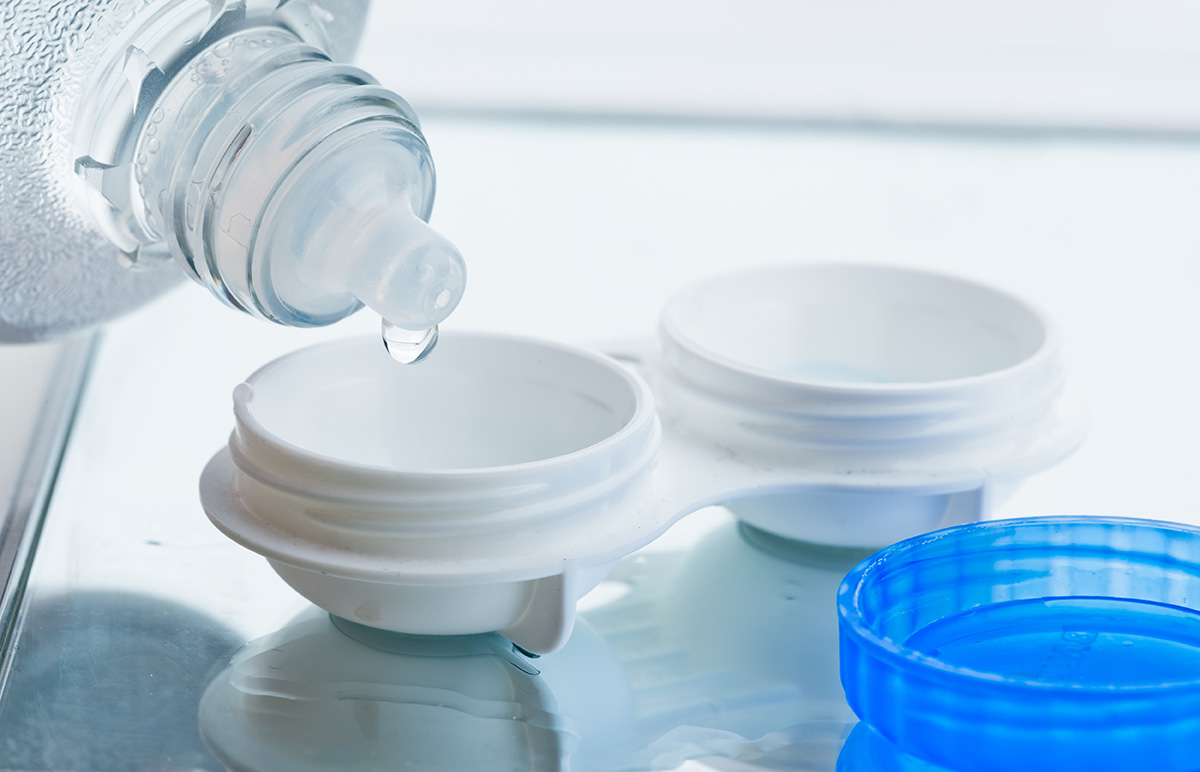Schedule Your Contact Lens Exam Today
Contact Lens
Exam
Call Us
Hours
Location

Contact Us To Schedule Your Appointment
Contact Lens Exam in Ken Caryl, CO
If you are interested in wearing contact lenses, the expert optometrists at the Eyecare Center of Ken Caryl can help you find the right contact lenses for your eye health and visual needs. Contact lens evaluations are performed annually to provide a patient with their contact lens prescription.
During a contact lens exam evaluation, your eye doctor will evaluate your eye health and vision and consult with you on your lifestyle and hobbies to ensure we recommend the right contact lens for your eyes, vision, and lifestyle. There are many new contact lenses that accommodate astigmatism, presbyopia, and more.
Contact lens exam
The contact lens exam may be conducted as part of your comprehensive eye exam or may be scheduled as a separate appointment.
- During the contact lens exam, your eye doctor will evaluate the size and shape of your eyes and will also check for any eye health issues which may affect your comfort while wearing contact lenses.
- Your eye doctor will measure your cornea to determine the curvature and size of your contact lens and will also measure the size of your pupils. We will use a non-invasive imaging technique called corneal topography (or corneal mapping) to create a detailed map of the cornea’s curvature. By using corneal topography, we can evaluate the cornea’s shape, detect irregularities, and identify conditions like astigmatism or keratoconus.
- Your eye doctor will also measure the axial length to accurately calculate the power of the contact lenses. Axial length refers to the measurement of the eye from the front surface (cornea) to the back surface (retina). It’s an important measurement to take during a contact lens exam because it can help us determine the proper size and shape of the lens needed for your eyes.
Once these tests are complete, your eye doctor will prescribe contact lenses based on your eye health and vision needs. They may provide you with trial contact lenses and ask you to wear them for a week or so. You will then come back for a follow-up exam to ensure the contacts fit comfortably and provide you with clear vision.
You will also receive a contact lens prescription that designates all the necessary parameters, including the contact lens material, base curve (a shape matching the curvature of your eye), and diameter.
Why do I need an exam for contact lenses?
Whether you currently wear contact lenses or would like to try wearing them, there are several reasons you need a contact lens exam.
Determine the right prescription
Contact lenses have a specific prescription that differs from regular eyeglasses. A contact lens exam helps to determine the right prescription for the lenses that will fit comfortably and provide clear vision. Contact lenses are also classified as medical devices by the U.S. Food and Drug Administration (FDA) and potentially pose risks to the wearer if not used properly. As such, they are subject to regulations and standards to ensure their safety and efficacy.
Evaluate eye health
A contact lens exam includes a comprehensive evaluation of the health of the eyes. This evaluation can detect any eye problems or conditions that may affect the use of contact lenses or require further treatment.
Assess fit and comfort
A proper fitting of the contact lens is essential for comfort and to avoid complications. During the contact lens exam, your eye doctor at Eyecare Center of Ken Caryl will measure the shape and size of the eye to ensure that the contact lenses fit properly.
The doctor will select the initial pair of lenses to try. She will then evaluate both your vision and the fit of the contact lens on your eye. If vision, comfort, or fit is unacceptable to you or the doctor, contact lenses can be altered accordingly.
Your contact lens evaluation fee will cover you for a 60-day follow-up period to allow you and the eye doctor to find the best contact lens option for your needs and eye health.
Discuss care and maintenance
Proper care and maintenance of contact lenses are critical to avoid eye infections and other complications. You will receive training on proper handling, care, and insertion and removal of your contact lenses. Taking proper care of your contact lenses and following your eye doctor’s instructions is key to experiencing comfortable, clear vision and maintaining healthy eyes.
Schedule a contact lens exam in Ken Caryl
The eye doctors at Eyecare Center of Ken Caryl have expertise in successfully fitting patients with the right contact lenses for their visual needs, eye health, and lifestyle. Contact us today to schedule your appointment!
